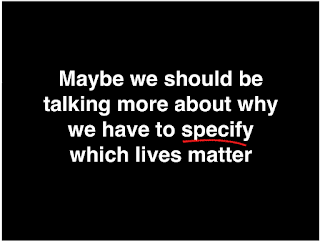Knowing more about Acquired Memory and Altered Memory gets me a little closer to understanding small pieces of how advertising and propaganda work on our little simian brains to produce something of a cult-like adherence to a particular brand of ideology.
Dr Elizabeth Loftus on the Thinking Atheist podcast:
Now if I could find someone who's published a study telling me I'm really not so crazy thinking I can make a solid link from all that memory stuff to things like the Etch-A-Sketch effect, I might have something.
The search for intelligent life (inside my own head) continues.
Dr Elizabeth Loftus on the Thinking Atheist podcast:
Now if I could find someone who's published a study telling me I'm really not so crazy thinking I can make a solid link from all that memory stuff to things like the Etch-A-Sketch effect, I might have something.
The search for intelligent life (inside my own head) continues.















